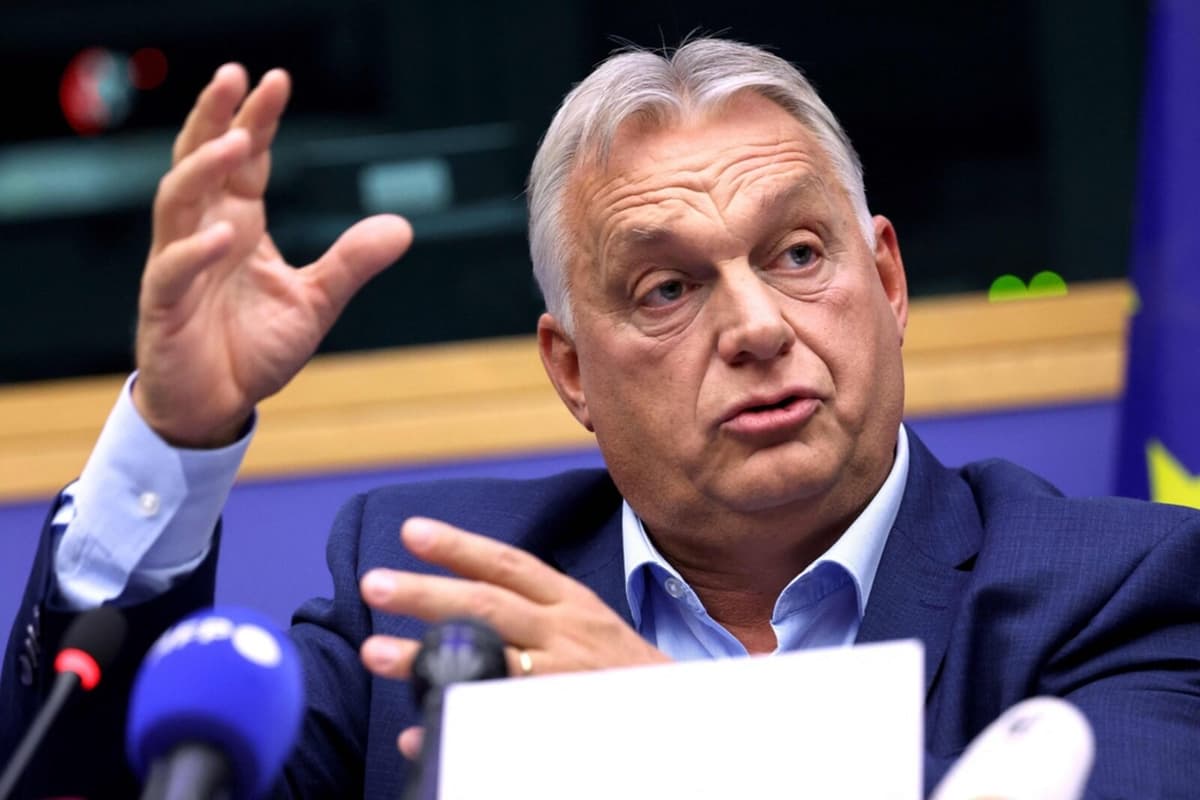Orbán is in Strasbourg to debate the EU Council presidency, which the country has held since July 1 and will hold until the end of the year.
The criticism has been extensive, not least around the "peace trip" that Orbán quickly made to Russian President Vladimir Putin in early July.
But he mostly shrugs it off. The only thing he is disappointed about is that no one listened to his proposal to try to pressure both Russia and Ukraine into negotiations.
We are convinced that you cannot win on the battlefield, he says to a Ukrainian journalist when he holds a two-hour press conference in the EU Parliament on Tuesday afternoon.
Does not want to leave the EU
Orbán is in a good mood, joking ironically about most things and clearly enjoying being in the spotlight, even for tougher questions. Not even a sudden outburst and angry slogans from a political opponent – quickly taken care of by the guards – disturb his mood.
You know that when we Hungarians call someone a bastard, it just means we're not politically in agreement, Orbán laughs.
He simultaneously assures that he is absolutely not an EU opponent.
We're not going to leave, we need the EU. But we need change. And the Brussels bubble can't do it, Orbán believes.
Hopes for Trump
In a month, Orbán will invite to a two-day summit in Budapest, first in the EPC cooperation with all European countries except Russia and Belarus, and then internally within the EU.
This will take place just a few days after the US presidential election – where Orbán knows exactly what he will do if Donald Trump wins.
Then we will open several bottles of champagne. It would be a fantastic day, says Orbán in Strasbourg.
Viktor Orbán (born 1963) is Hungary's Prime Minister and party leader for Fidesz, which was created as a liberal youth movement in 1988, but has become increasingly conservative over the years.
The political breakthrough came in 1998 when Orbán became Prime Minister for a coalition government. From 2002, eight years in opposition followed, but with growing support – not least since the then left-wing government in a notorious internal party conflict in 2006 acknowledged how they had lied to the voters. Since the spring of 2010, Orbán has been Prime Minister again, with Fidesz as the country's largest party by far.
Orbán has been married to Anikó (née Lévai) since 1986 and has daughters Ráhel, Sára, Róza, and Flóra, as well as son Gáspár.






